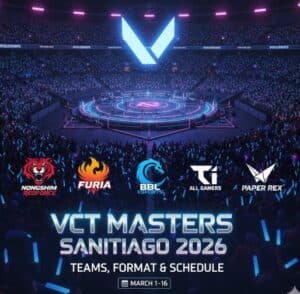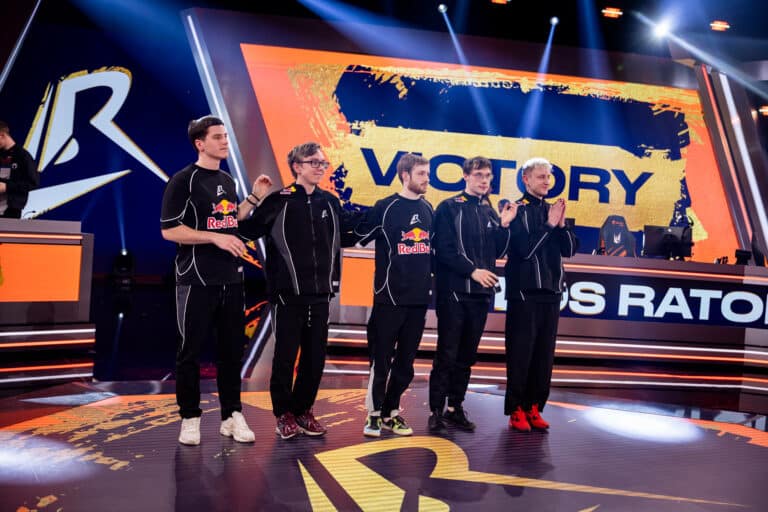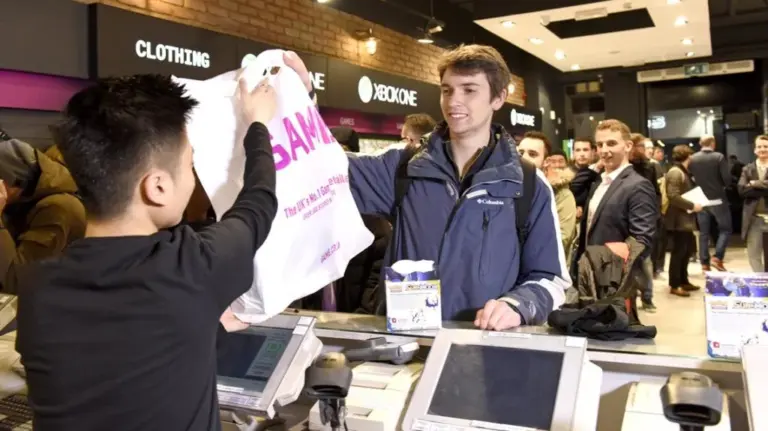The Fortnite Milk Cup sparks dispute over transphobia in esports
Hannah Marie ZT, Senior Editor
Last Updated: 23/10/2025
Following the Fortnite Milk Cup, some competitors have disputed the inclusion of transgender women.
However, many others have decisively spoken up in defence of gender minorities and the need for inclusive spaces.
Comments from Fortnite Milk Cup competitor kickstart online dispute
Hosted at TwitchCon San Diego, the USD$300,000 (~GBP£223,000) prize pool Fortnite Milk Cup tournament was won by Nina ‘ilyynina’ Fernandez and ‘Vader’, representing Xset.
CONGRATULATIONS to @vader_fn and @ilyynina, THE MILK CUP 2025 CHAMPIONS! 💜🏆#TheMilkCup pic.twitter.com/j2jKxTffR7
— Milk (@GonnaNeedMilk) October 19, 2025
However, anti-trans inclusion dialogue has clouded the duo’s win.
18-year-old Vader is transgender. Her success in the competition led some competitors to raise issues with the inclusion of transgender women in the tournament. Unfortunately, this also overshadowed the achievements of her teammate, who played an equal part in the duo’s success.
Similar discourse was raised after the ESL Impact Season 7 Final sparked a flurry of online abuse due to the inclusion of transgender women.
‘Eympra’ also competed in the Milk Cup, finishing 46th out of the 50 duos. Post-tournament, she appeared to declare that ilyynina and Vader’s win was a “slap in the face.” It has since been clarified that this was not, in fact, a direct reference to their win. It was not further defined as to what specifically was a “slap in the face” for the competitor.
Furthermore, she alleged that women are “silenced by the companies who run these tournaments so we can’t say anything directly without punishment.”
Other women responded to Eympra, pointing out that companies are likely not silencing her if she can comment so publicly about it.
Some also raised the fact that there is no biological advantage between men and women in video games. Professional performance is more heavily impacted by societal issues than by biological differences. This is identified in published studies and raised by commenters.
Notably, a male esports coach named ‘Awkward’ chose to ask online, “Are women genuinely okay with this? If they are, I’ll stop feling bad.” However, he proceeded to insult some of the women who responded. He also questioned the validity of their opinion on the matter.
Are men biologically better at video games than women?
Many arguments concerning the Fortnite Milk Cup seem to be framed with the perspective that an individual born male has an automatic advantage over those born female. This implies a biological advantage for one side over the other.
However, studies conducted on gender disparities in esports and whether men advance faster than women in MMO games strongly suggest that “toxic culture and individual attributions” are a more suitable focus for differences in esports success.
women are not ‘less skilled’ than male gamers. the reason behind holding the milk cup for women exclusively stems from allowing them to have their own space. women are not any less talented, they are just more susceptible to stereotype threat compared to their male counterparts
— 𝘀𝗮𝘃𝗮𝗻𝗻𝗮 ❦ (@savannastxrm) October 19, 2025
In fact, studies on skill advancement in games show that “perceived gender-based performance disparities seem to result from factors that are confounded with gender (i.e., amount of play), not player gender itself.”
Although men and women have different strengths, they have been observed to learn video game skills at the same rate.
Therefore, it is most likely the lack of opportunity to game — whether due to being discouraged for being a woman, having additional responsibilities that take up more time, or facing demoralising experiences while gaming — that makes a difference.
Events such as the Fortnite Milk Cup are designed to create inclusive, welcoming spaces for women in esports.
Intended to provide safety from harassment for professional development, the inclusion of transgender women extends this vital protection to all women. It does so without leaving other marginalised groups out in the cold.
All this transphobia surrounding Raidiant's Milk Cup is so disturbing. This is meant to be a safe space for ALL marginalised genders
— Neylani (@N3ylani) October 20, 2025
Trans women are women. If you can't comprehend that you are either bigoted or need to educate yourself (pls educate yourself I'm begging)
Women speak out to support transgender Fortnite Milk Cup competitors – “they are my SISTERS, and I am theirs”
Despite some competitors publicly commenting on the inclusion of transgender women in the Fortnite Milk Cup, other women in esports have been vocal with their support.
Sentinels Marvel Rivals player, ‘Aramori’, published a passionate post online. This post acknowledged the issues she faces as a cisgender woman in esports, and she professes that “trans women deal with everything I do multiplied 10 times over.”
She states, “They are my only peers who truly understand what we have to deal with every day. They are my sisters, and I am theirs.”
i deal with a LOT of shit in esports. A LOT.
— sen aramori (@Aramori_) October 21, 2025
trans women deal with everything i do multipled 10 times over
they are my only peers who TRULY understand what we have to deal with everyday
they are my SISTERS, and I am theirs.
sick of random men using "but think of the cis… https://t.co/dOVKkt5ANM
She also recalls witnessing how “the trans women I play alongside are legitimately denied trials, denied ringing, and hit with so much misogyny and transphobia in ranked.”
Comments under her posts thanked her, shared their own experiences in-game, and reiterated solidarity with her words. Nevertheless, others commented to reiterate the narrative of biological advantage, with some insulting her for expressing her support.
Disputes over the inclusion of transgender women are not uncommon in esports.
However, it is essential not to divert conversation away from the need for safe, inclusive environments in esports.
Both cisgender and transgender women face incredible hardship in the world of esports and gaming.
Adequate support for all women is a more appropriate goal.
Hannah Marie ZT, Senior Editor
Hannah is a journalist specialising in the esports, gaming, and technology sectors. Working for outlets such as Dot Esports, Esports Insider, and of course ENUK, she has developed a love for wider esports, Apex Legends, and advocating for women's esports initiatives. You may have seen her at various esports and gaming events, including ALGS LANs, ESI London, EGX, and watch parties.
Stay Updated with the Latest News
Get the most important stories delivered straight to your Google News feed — timely and reliable





From breaking news and in-depth match analysis to exclusive interviews and behind-the-scenes content, we bring you the stories that shape the esports scene.
Monthly Visitors
User Satisfaction
Years experience
Latest In the headlines











